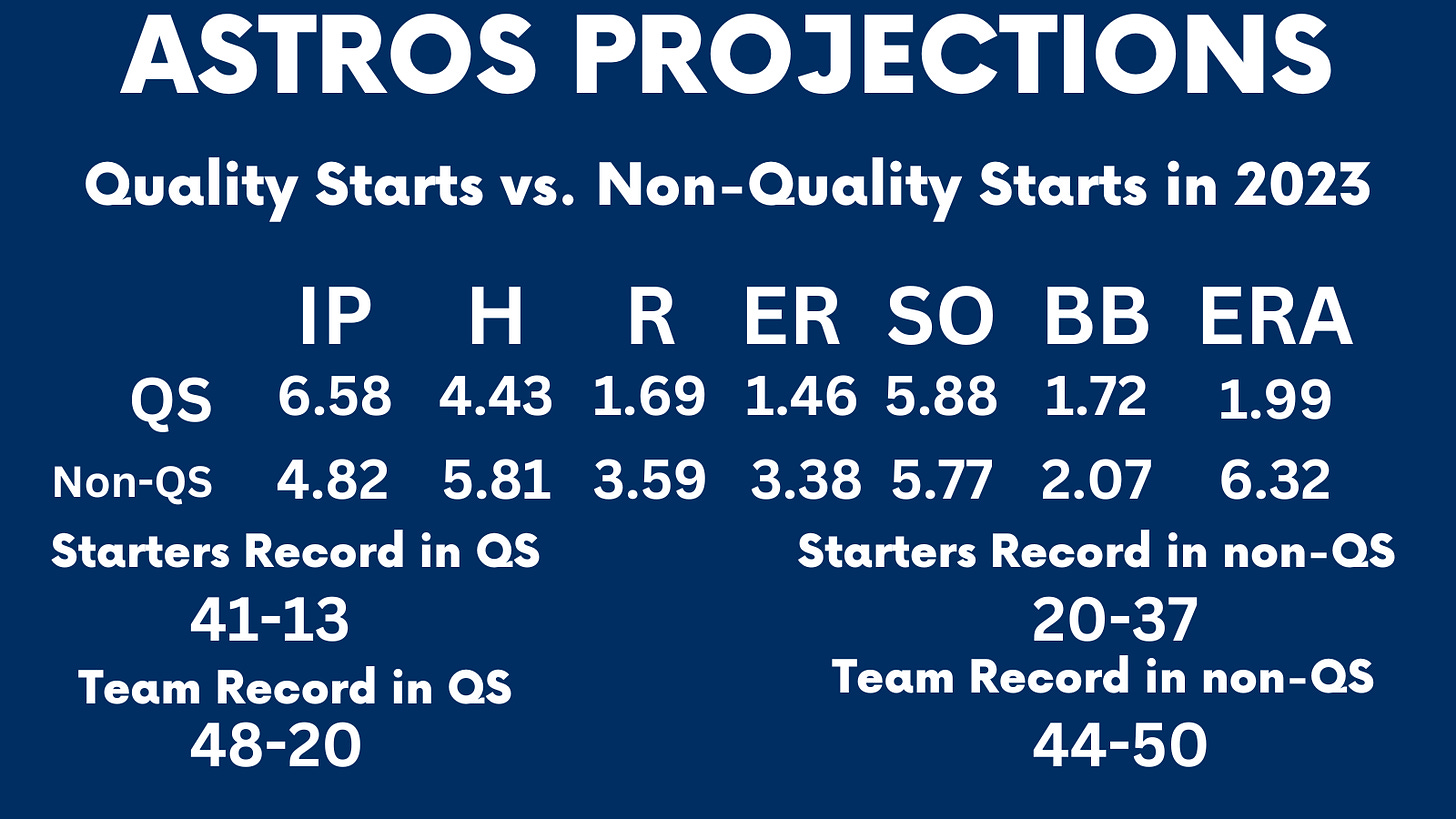For a long time, I believed the argument over whether a quality start was a good measure for a starting pitcher was a contrived one by fantasy baseball players who were wronged by some pitcher whom they bought because they were told said the pitcher had a lot of quality starts and therefore was “good”.
Whatever the reason, I haven’t received a lot of pushback on the idea of quality starts being a “good” thing. There was some, but I think in large part that ship has sailed because of data like that in this post.
I‘ve never played fantasy baseball, so I fail to understand why the uproar, because by definition, if a pitcher recorded a quality start his team was still in the game after 6 innings (either ahead or almost always down by 3 or fewer runs) and that’s all most teams ask from starters in this era of baseball.
Their argument usually went something like “Giving up 3 runs in 6 innings is a 4.50 ERA, that sucks.”
In addition, once the advanced metrics came into existence and xFIPs and xERAs became things, a certain segment of baseball fans and analysts began to care more about what “should” have happened than what actually did happen.
A lot of them still do (yes, I understand why).
All of this made me wonder: Are Quality Starts a fake stat? A bad stat? Do they mean anything?
First, I wondered how often “6 innings and 3 earned runs” really happen in quality starts.
The answer for Houston in 2023 was 9 times in 68 quality starts, or 13% of quality starts.
And the pundits were largely correct on this one, as the starters were 2-4 with 3 no decisions in the 6 innings, 3 run quality starts. Not great.
Still, that leaves us 59 Quality Starts that went longer than 6 innings and boy were the nerds wrong about these.
Turns out quality starts are a good thing, both for the starting pitcher and the team as a whole, even when including the 9 “bad” quality starts above.
Looking at the numbers above, I’m baffled as to why there was ever even a question: Starters were winning pitchers in 60.2% of quality starts as opposed to 21.3% of non-quality starts. They pitched more innings, gave up fewer hits, runs and earned runs, struck out more, walked less and their ERA was less than one-third of non-quality starts.
A quality start may not get you a bunch of fantasy points, but they darn sure lead to wins, both for the starting pitcher and more importantly for the team he pitches for.
The average quality start for Houston lasted 6.58 innings and resulted in a 1.99 ERA, a far cry from the worst-case scenario 4.50 ERA.
That 41-13 record for starters in QSs? A .759 winning percentage for the pitcher and even if the starter didn’t get the win, 48-20 comes out to a .706 winning percentage for the team when the starter gives you a quality start.
When Astros starters didn’t give the team a quality start they didn’t complete 5 innings on average, their record was 20-37 (.351) and their ERA was 6.32. The team went 44-50 (.468).
It seems intuitive to me. A quality start means you’re team is still in the game at worst, likely leading and probably going to win.
Your bullpen is also much more likely to be rested, or at the very least, not used as often.
What’s in a name?
I’ve come to believe the positives of a quality start are so obvious there has to be another reason for the angst and I think I’ve figured it out.
It’s the name. People don’t like that you “can” give up “3 runs and 6 innings” and it is deemed a “quality start”, despite the fact this is the minimum and happens relatively infrequently (roughly once in every 7.56 quality starts).
To me, this is like saying because some home runs go 330 feet every home run is cheap. It makes no sense.
Maybe we need a different name for it to erase the stigma associated with the current one.
I plan on tracking these a little closer in 2024, just to make sure it wasn’t a one-year anomaly, but the evidence appears clear and convincing.
When the starting pitcher goes at least 6 innings and gives up 3 or fewer earned runs the Astros win a high percentage of games.
Wait till they find out that if the starter goes at least 7 innings, starters were 24-7 (.774) and the team was 26-9 (.743).







